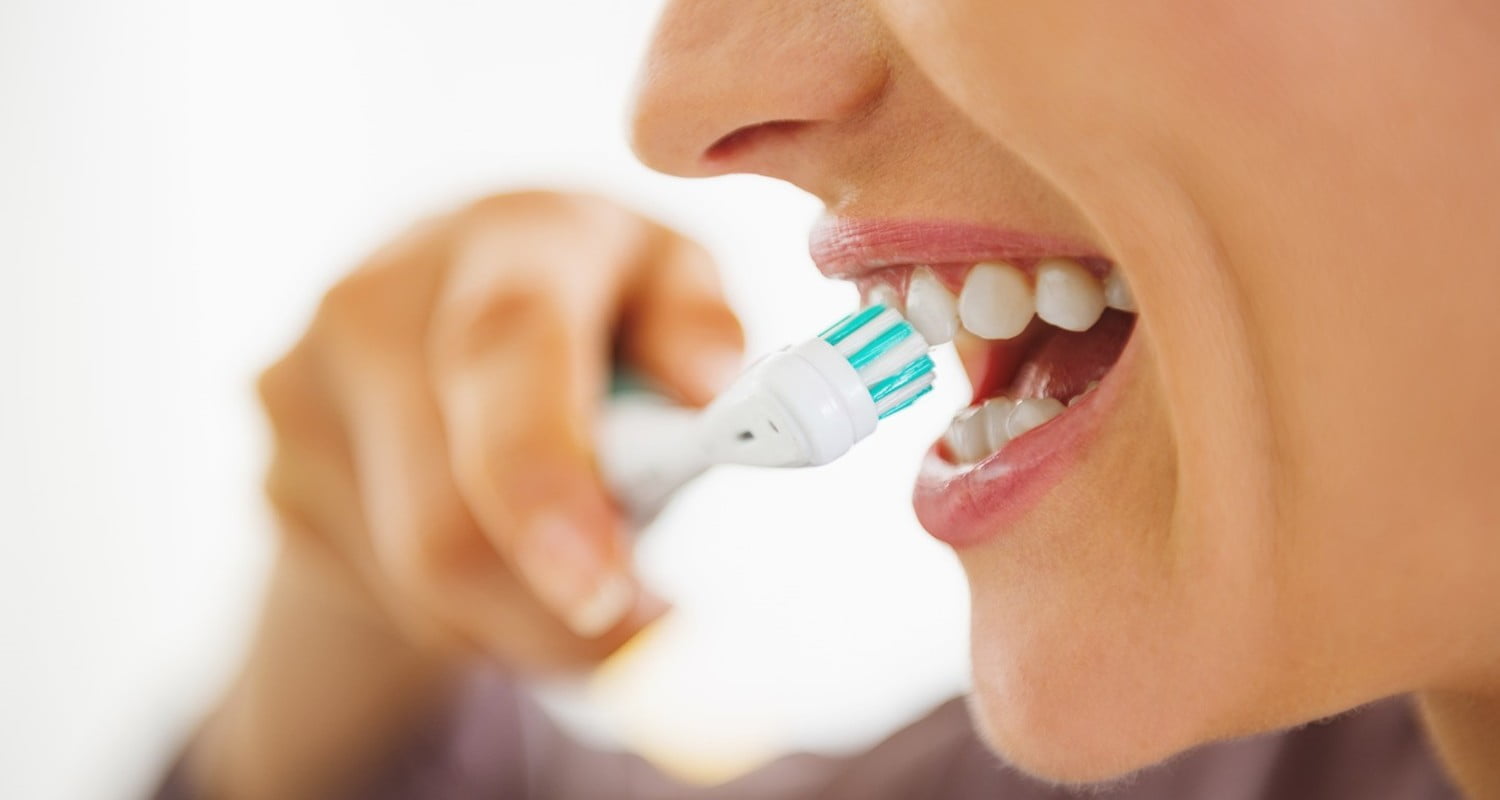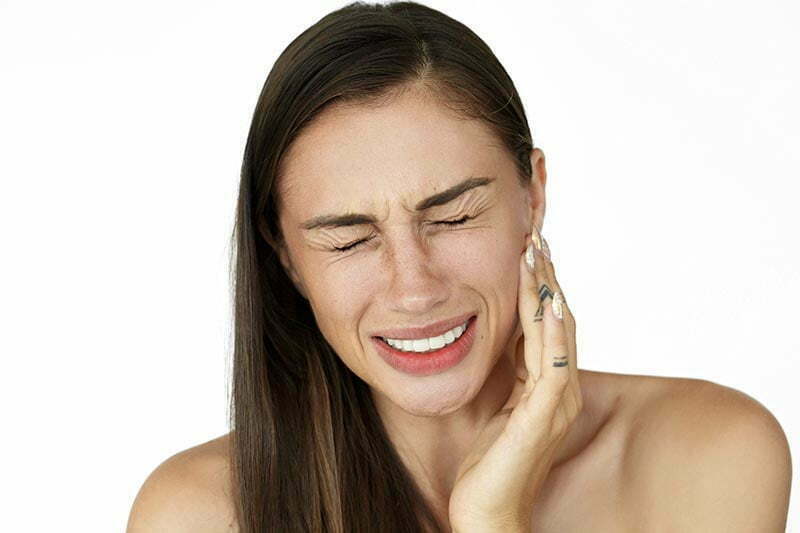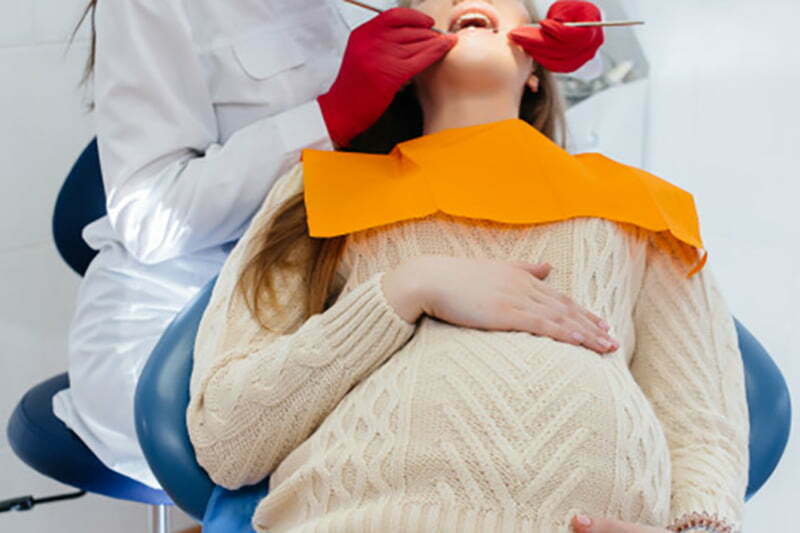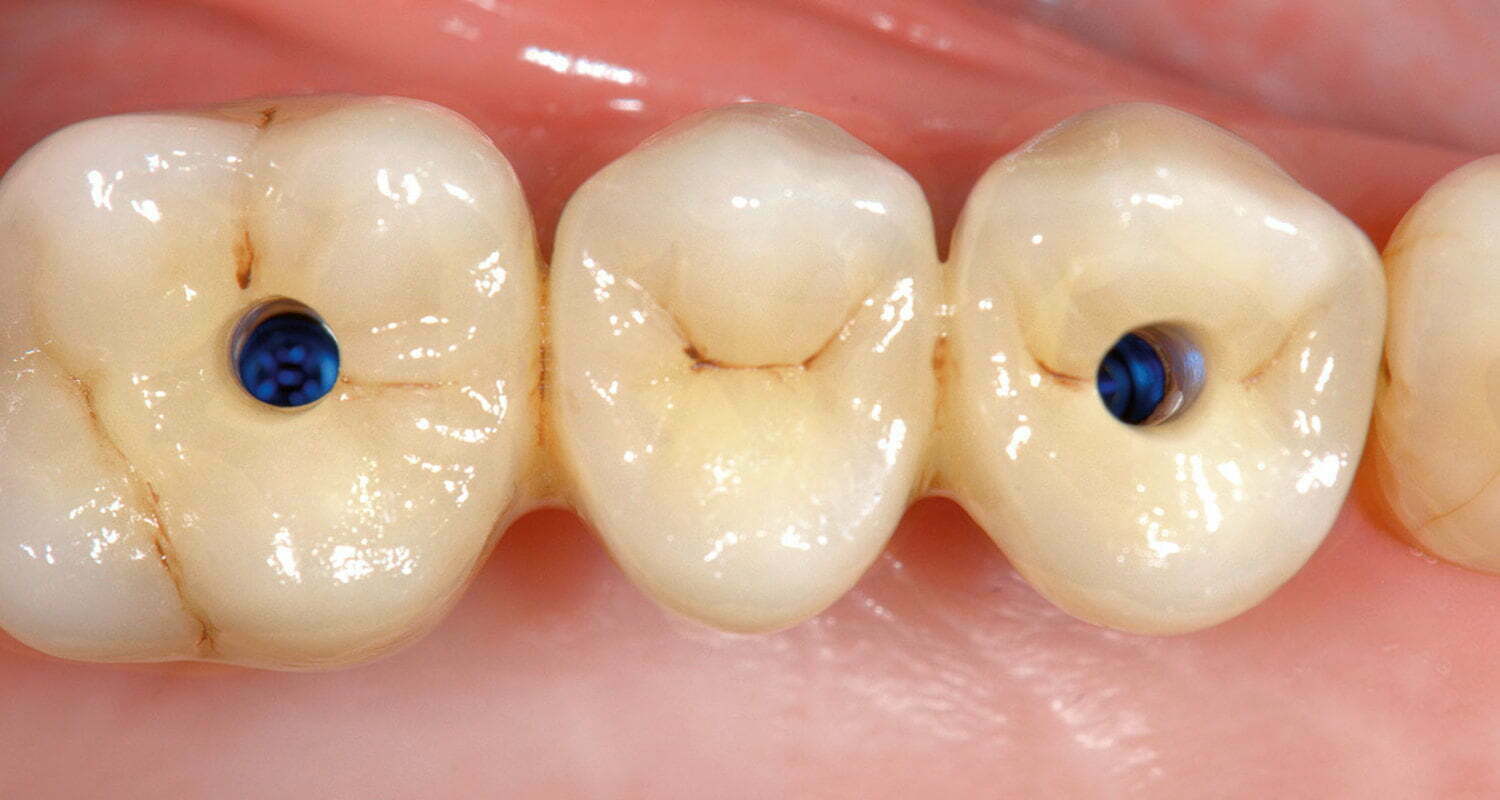Wisdom Teeth
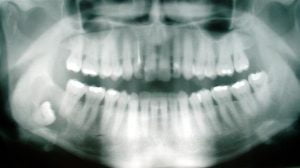
Wisdom teeth are the third molar teeth coming out latest. They are usually seen in the mouth between the ages of 17 and 25. Wisdom teeth can be kept in the mouth depending on whether they damage their area and neighboring tissues. Due to the stenosis in the back of the tooth, they can cause impacted teeth under the gum or completely in the bone due to narrowness. It would be useful to extract impacted wisdom teeth.
In which cases should the wisdom teeth be extracted? 1) If there is a cyst-like formation around the tooth 2) In cases where plaque accumulation is a source of bacteria and oral odor due to the location of the tooth 3) If there is a risk of increasing the misshaping of the people who will get orthodontic treatment 4) If there is a bruise or abscess formed in the relevant tooth (when root canal treatment cannot be performed) 5) In cases where the tooth cannot come out completely in the relevant area, food accumulation in the gum and inflammation of the gums are observed 6) Where it pressures the front teeth and causes the misshaping 7) For prosthesis planning that covers all mouth, problematic wisdom teeth are removed from mouth. When should the wisdom teeth be extracted? Whether they cause any problem or not, the impacted or semi-impacted wisdom tooth should be extracted. When individuals are 40 years of age and over, operation and wound healing after operation becomes difficult.
What is the difference between extraction of wisdom teeth and other teeth? First, it varies depending on the position and impacted situation of the tooth. Tooth extraction is no different from normal extraction in areas where the tooth is not impacted and it is easy to reach. A slight swelling, pain and bleeding may occur after a simple extraction. Some complex extractions that require more specific procedures can also be applied. After these comp lex extractions, swelling may increase and antibiotics and painkillers may be used. Extraction becomes harder and recovery slows as bone structure intensifies and elasticity decreases at older ages.
What should be considered after extracting the wisdom teeth? - The tampon must be bitten by pressure for 30 minutes after extraction, which stops bleed
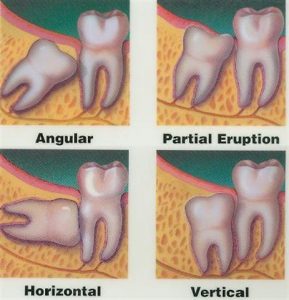
ing and causes clots to form. - Extraction location should not be played with as pain, infection or bleeding may occur. - Do not spit. Otherwise, the bleeding increases and the clot may move. - Do not eat or drink anything until the anesthesia effect has passed. - Eat and drink with the opposite side of the area where the extraction was made on the first day. - Do not consume cigarettes or alcohol d uring the day. - If the extraction was difficult after the operation, a cold tampon is applied to the area to slow the circulation and prevent the swelling of the face. The application should be as follows: Continue for 20 minutes with cold tampon - 20 minutes break - and 20 minutes with cold tampon again. - Use prescribed medication as described and regularly.
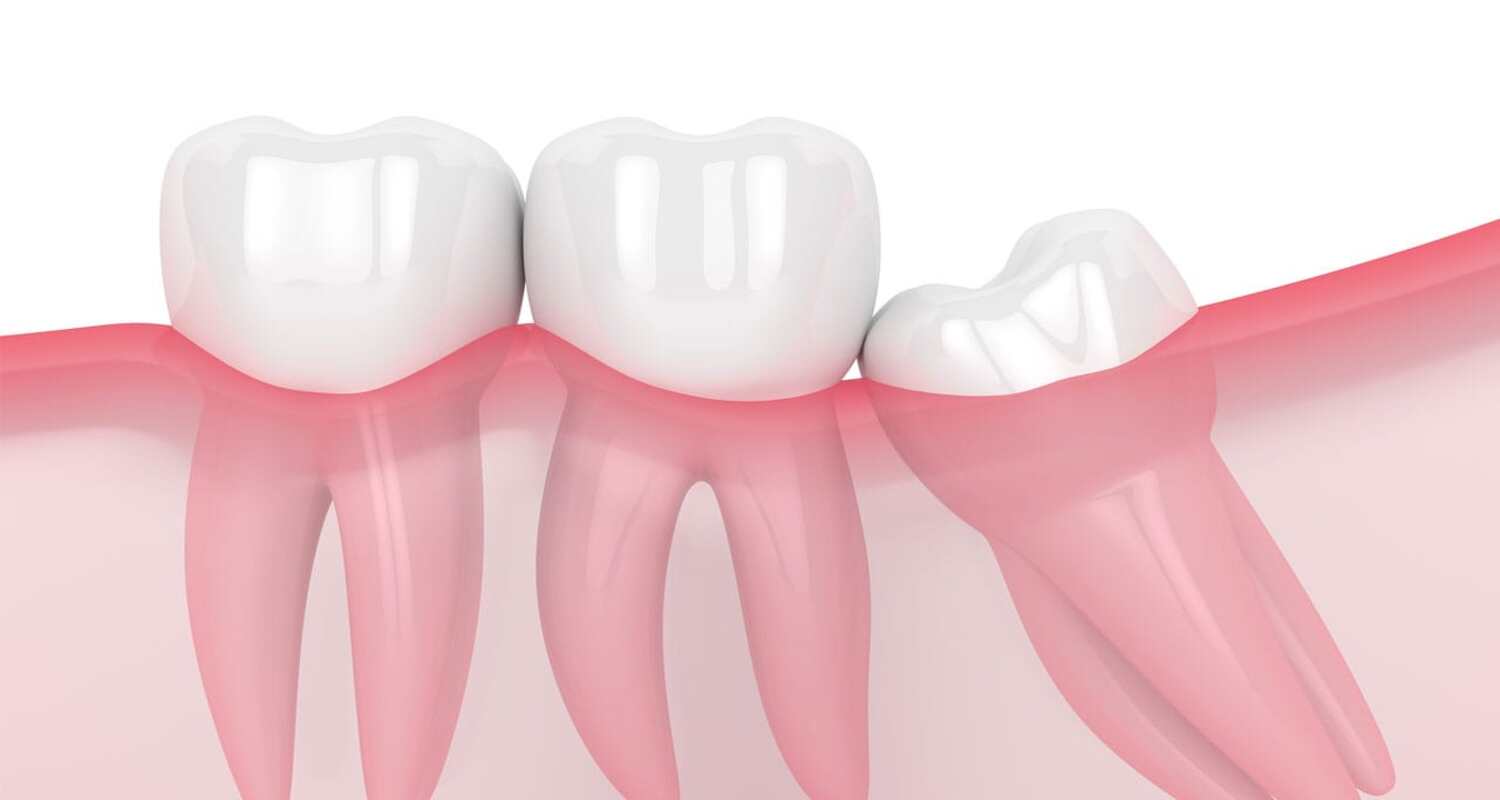
 Wisdom teeth are the third molar teeth coming out latest. They are usually seen in the mouth between the ages of 17 and 25. Wisdom teeth can be kept in the mouth depending on whether they damage their area and neighboring tissues. Due to the stenosis in the back of the tooth, they can cause impacted teeth under the gum or completely in the bone due to narrowness. It would be useful to extract impacted wisdom teeth. In which cases should the wisdom teeth be extracted? 1) If there is a cyst-like formation around the tooth 2) In cases where plaque accumulation is a source of bacteria and oral odor due to the location of the tooth 3) If there is a risk of increasing the misshaping of the people who will get orthodontic treatment 4) If there is a bruise or abscess formed in the relevant tooth (when root canal treatment cannot be performed) 5) In cases where the tooth cannot come out completely in the relevant area, food accumulation in the gum and inflammation of the gums are observed 6) Where it pressures the front teeth and causes the misshaping 7) For prosthesis planning that covers all mouth, problematic wisdom teeth are removed from mouth. When should the wisdom teeth be extracted? Whether they cause any problem or not, the impacted or semi-impacted wisdom tooth should be extracted. When individuals are 40 years of age and over, operation and wound healing after operation becomes difficult. What is the difference between extraction of wisdom teeth and other teeth? First, it varies depending on the position and impacted situation of the tooth. Tooth extraction is no different from normal extraction in areas where the tooth is not impacted and it is easy to reach. A slight swelling, pain and bleeding may occur after a simple extraction. Some complex extractions that require more specific procedures can also be applied. After these comp lex extractions, swelling may increase and antibiotics and painkillers may be used. Extraction becomes harder and recovery slows as bone structure intensifies and elasticity decreases at older ages. What should be considered after extracting the wisdom teeth? - The tampon must be bitten by pressure for 30 minutes after extraction, which stops bleed
Wisdom teeth are the third molar teeth coming out latest. They are usually seen in the mouth between the ages of 17 and 25. Wisdom teeth can be kept in the mouth depending on whether they damage their area and neighboring tissues. Due to the stenosis in the back of the tooth, they can cause impacted teeth under the gum or completely in the bone due to narrowness. It would be useful to extract impacted wisdom teeth. In which cases should the wisdom teeth be extracted? 1) If there is a cyst-like formation around the tooth 2) In cases where plaque accumulation is a source of bacteria and oral odor due to the location of the tooth 3) If there is a risk of increasing the misshaping of the people who will get orthodontic treatment 4) If there is a bruise or abscess formed in the relevant tooth (when root canal treatment cannot be performed) 5) In cases where the tooth cannot come out completely in the relevant area, food accumulation in the gum and inflammation of the gums are observed 6) Where it pressures the front teeth and causes the misshaping 7) For prosthesis planning that covers all mouth, problematic wisdom teeth are removed from mouth. When should the wisdom teeth be extracted? Whether they cause any problem or not, the impacted or semi-impacted wisdom tooth should be extracted. When individuals are 40 years of age and over, operation and wound healing after operation becomes difficult. What is the difference between extraction of wisdom teeth and other teeth? First, it varies depending on the position and impacted situation of the tooth. Tooth extraction is no different from normal extraction in areas where the tooth is not impacted and it is easy to reach. A slight swelling, pain and bleeding may occur after a simple extraction. Some complex extractions that require more specific procedures can also be applied. After these comp lex extractions, swelling may increase and antibiotics and painkillers may be used. Extraction becomes harder and recovery slows as bone structure intensifies and elasticity decreases at older ages. What should be considered after extracting the wisdom teeth? - The tampon must be bitten by pressure for 30 minutes after extraction, which stops bleed  ing and causes clots to form. - Extraction location should not be played with as pain, infection or bleeding may occur. - Do not spit. Otherwise, the bleeding increases and the clot may move. - Do not eat or drink anything until the anesthesia effect has passed. - Eat and drink with the opposite side of the area where the extraction was made on the first day. - Do not consume cigarettes or alcohol d uring the day. - If the extraction was difficult after the operation, a cold tampon is applied to the area to slow the circulation and prevent the swelling of the face. The application should be as follows: Continue for 20 minutes with cold tampon - 20 minutes break - and 20 minutes with cold tampon again. - Use prescribed medication as described and regularly.
ing and causes clots to form. - Extraction location should not be played with as pain, infection or bleeding may occur. - Do not spit. Otherwise, the bleeding increases and the clot may move. - Do not eat or drink anything until the anesthesia effect has passed. - Eat and drink with the opposite side of the area where the extraction was made on the first day. - Do not consume cigarettes or alcohol d uring the day. - If the extraction was difficult after the operation, a cold tampon is applied to the area to slow the circulation and prevent the swelling of the face. The application should be as follows: Continue for 20 minutes with cold tampon - 20 minutes break - and 20 minutes with cold tampon again. - Use prescribed medication as described and regularly. 


